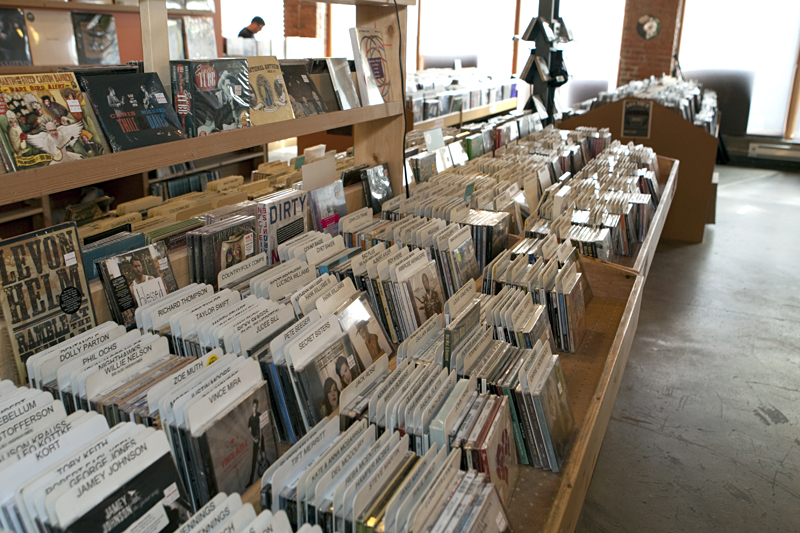After eight years in the neighborhood—2003 to 2009 on 15th Avenue, and late 2009 through the present on Melrose Avenue—Sonic Boom will close its Capitol Hill location on Sept. 5. On Monday morning, owner Jason Hughes announced the closure, citing “economic circumstances, industry collapse, rising rents, and a building perpetually under construction” as reasons for the decision. In an interview with Seattle Weekly, Hughes said the Melrose location has been in the red since the December 2009 move, and that he would now focus entirely on Sonic Boom’s Ballard location. As inventory clears out on Capitol Hill, the space will host a used-vinyl weekend market.
“Capitol Hill is not a viable neighborhood for a record store anymore,” Hughes says. “I don’t think anybody up on Capitol Hill has the discretionary money to spend on music. I think they spend it all on food and booze and entertainment. The Ballard demographic is a little bit older—they still buy CDs.” Hughes later took to Sonic Boom’s website to clarify his statement, saying “Rents are too high, CD prices and sales too low, and there is not as much neighborhood support for music sales as there once was.”
Capitol Hill is, of course, home to a number of other record stores, including specialty shop Wall of Sound, Broadway’s brand-new Spin Cycle, and Sonic Boom’s most comparable competitor, Everyday Music. EM assistant manager Josh Hansen agreed with Hughes’ assessment of the Capitol Hill demographic: “We still get a fair amount of people coming in here buying records and DVDs, but our CD sales are definitely declining, and I think that’s probably because people would rather spend it on food and booze than CDs.”
Matt Vaughan, founder and owner of Easy Street Records, chimed in on Sonic Boom’s Capitol Hill closing, blaming the neighborhood’s commercial layout. “The fact is, there’s just not a lot of retail up there anymore,” he says. “And the retail that is there . . . doesn’t seem to have a vision, collectively. I’m going to have to put it on the landlords. I don’t think there’s been a vision to how retail can be the subsistence that can breathe life into the neighborhoods in the daytime.”
While Sonic Boom’s closing is a loss for local crate-diggers, there remain a number of nationally recognized music retailers in town. Last year Rolling Stone named Easy Street, Sonic Boom, and Fremont’s secondhand store, Jive Time, among its 25 best record stores in the country. In addition, Seattle boasts specialty and vinyl shops like Bop Street and Leary Records, as well as the large-scale Silver Platters. It’s a lot of competition in an era when music fans are increasingly bypassing brick-and-mortar stores for digital alternatives, both legal and otherwise.
“The days of having a big record store in Seattle may be over,” says Vaughan. “There’s just still too many record stores with all of us here. But I don’t really know how to do anything else . . . I’ll get my kicking boots on and get my brass knuckles out.”








